Aspiring author, Fan of Star Trek Voyager, Stargate SG-1, Stargate Atlantis, The 100, Marvel's Agent Carter, Sparky (John Sheppard/Elizabeth Weir), Kabby, Sam/Jack, and J/C are my OTP's
82 posts
Latest Posts by sorayali20 - Page 3
Guide: How to Get Excited About Your Story Again
Anonymous asked: Hi! I’m really deep in my stor-stor now and I love it, but sometimes things get a little too big and overwhelming and I need to remind myself what I love about the story in the first place; what’s got me going and what keeps me going. Any tips on doing so?
1) Cast your characters, or if you’re artistic, try drawing them. If you’ve got Photoshop skills, try making a movie-style poster for your story. 2) Create a tumblr gallery filled with images that inspire you where your story is concerned. These could be images of things in your story, things you want to include in your story, or just things that make you think of your story. 3) Make a playlist of songs to serve as a soundtrack for your story. 4) Make a list of five things you love about every character, five things you love about the plot, and five things you love about the setting. 5) Write a short essay about the important themes in your story and why they matter to you. See if similar themes run through any of your other stories. 6) Get a fun and easy going friend or sibling to play “radio show” with you. Have them interview you about your story as though you were an author talking about their novel on a radio show. Try to be serious about it for as long as you can–which won’t be long because it’s super cheesy but lots of fun. 7) Try to write a poem about the plot of your story as though your protagonist was the one writing it. 8) Draw maps and floor plans of your setting and sets. Go window shopping online to look for furniture and props to fill your character’s home with. 9) Make a Wordle using words from your story. 10) Read your story out loud as if you were reading it to a group of fans. Try to imagine their reactions at different points in the story. When would their attention be the most rapt? When would they smile? When would they sniffle? When would they cheer? I hope that helps! :)
Everything You Wanted To Know About Book Sales
Great article currently doing the rounds, worth reading:
Everything You Wanted To Know About Book Sales But Were Too Afraid To Ask
Yes, I’ve been internet-dead for the last two months. Sorry about that. I’ve pretty much been life-dead too, so you know. Rah? O:)
Everything You Wanted To Know About Book Sales was originally published on Amy Laurens
You Will Be Rejected
Not: You might be rejected.
Not: You’ll have a few rejections.
Not Even: Well, if you’re only mid-list worthy you’ll have at least twenty rejections.
You want to get published? Fine. You need to accept that every single day of your career will have rejection.
Everything you write will be rejected.
Every book you publish will be hated.
Every character you love will be degraded.
Every hour you put in – the blood and sweat and tears – will be dismissed as “…talentless hack who doesn’t know how to string a sentence together.”
Millions of people will never read your book because they can’t read at all.
Millions of people will never read your book because they don’t speak the same language as you.
Millions of people will never read your book because they hate your genre.
Millions of people will never read your book because they don’t like fe/male authors.
Millions of people will never read your book because they didn’t get into it.
Billions of people will reject your work. They will mock you. They will dismiss you. They will talk trash about you.
You. Will. Be. Rejected.
It doesn’t matter. You aren’t writing for the millions. You are writing for the one.
The one person who tells you your book made them cry because it spoke to them.
The one person who tells you your book changed the way they saw the world.
The one person who tells you your book was the only light in a dark time.
The one person who tells you your book inspired them to be something more.
You are writing for them.
They will wish they could take your characters to prom.
They will read your book after their mother’s funeral.
They will curl up in bed with your book on a cold night after their first real break up.
They will turn to those pages time and again to revisit the places they love.
You’re going to get rejected. And you’re going to take that punch square on the chin and not ever back down because you know who you are writing for. Because you know it takes more than a pretty font to make a book work, you have to be willing to take the rejections. You have to go into this knowing you will fail a million times with a million readers, and that it doesn’t matter because you aren’t writing for them.
Keep your chin up. You are someone’s favorite author even if they don’t know it yet.
Let’s talk about starting to write
A lot of first time writers come up with a great idea for a story but have no clue on how to start writing it. In this post i will try to give a couple of pointers on how to do just that. But first let me point out that there is no one way on how to begin your novel. I do not claim that how i do it is the best way, everything i tell you here is just how i start my writing but hopefully it will help some of your guys out there. Understand that there is no correct order for these tips, they all are related in some way and creating one thing will lead to another in a different category. That being said, let’s begin!
Make a timeline
I always start by creating a timeline on which i can mark different events in my novel. I will assume here that, like me you have thought of at least one scene when you got your amazing idea. This is a great start which you immediately can put on your timeline. This timeline is going to become your best friend so i suggest you place it somewhere where you can access it easily.
Now i name each point on my timeline with a short title, things like: this character dies, this battle occurs, this character get’s bad news,… Things like that. Then i place this title in a separate document and clarify what i mean with this title. I describe how i imagined the scene, which characters are present, what it is about, … everything i can think off off of the top of my head. Then before i start writing that scene i will reread this piece and maybe add a couple of things.
Normally i tend to categorize and color code each title in my timeline and the separate document. I categorize them by something that suits the story: per point of view, per area they are in,… If done correctly (and by that i mean with a summary with a description what each category or color means) it can help you keep the timeline neatly structured so you only have to glans at it to know what is going on.
Start to build the basics of your world
In one of my previous posts i talked about world building, Here is a link to this post and i suggest you check it out to learn how to easily build up a world.
World building consists of two parts: culture and environment. You need to create or now in which kind of culture your story is going to take place and choose in which environment this culture is going to exist in. Both influence the others greatly, for example you can not have a people who live in wooden houses live on a barren wasteland. They will need to live in stone housing and thus the environment influences the culture you create.
So start by brainstorming and try to come up with answers to questions like: Is it a fictional place or a non-fictional one, is it going to be in an urban setting or in the woods outside of the city, in what time period is it going to take place, …
This is the part that is going to take a lot of your own creativity to make your story unique so i won’t talk any more about this part. Check the link for a full explanation on how to easily create a world.
Create your first characters
In one of my previous posts i already talked about character development, you can find that post here. But the things i talked about in that post are a bit more advanced, what you want to know is how to create your first character. There are different ways to do this: you can create the character you want or create the character the story needs. Many a writer would critique the second way by saying that this makes the characters flat and ensures that the character has a lacks of an interesting character arc. Now i am a big fan of the second way so i beg the differ, i think when you create the character the story needs it ensures that your character fits the setting. It is then the job of the writer to make that character interesting. But we will get to that in a bit.
Whichever way you choose i always suggest you create and develop the basic characters first and with that i mean your pro- and antagonist(s). It makes sense that, because the story revolves around them they are the most important and thus they need the most development. As i have stated before the easiest way to remember how every character is are the character questionnaires which you find all over tumblr and other writing blogs. But in my previous post about character development i also stated that these questionnaires alone are not enough to make a character feel real. Definitely check the link out to know which tips i gave about that subject.
When you created the main characters you are going to need to brainstorm. For example i will make a character called Tony (and let’s just say i already tried to develop him to the fullest i possibly could). Tony is going to need a set of parents and so i create Maria and Jack. My backstory requires him to be best friends with his cousin so i create Jenny. He is getting a masters degree so he is going to need a couple of teachers and since he is kind of popular he is going to need at least six good and a couple of semi good friend. BAM, i just created another twenty characters. You just keep this brainstorming going until you have been through your entire story and you will have a complete list of characters which you need to describe and create. Does every character need to be fully developed? No, If for example one of his professors only get’s mentioned once you probably don’t need to know who his parents were and how he defines himself as a human being. But his best friends do need the full treatment.
Lastly i want to point out that you need to keep a list with all of your created characters where you sum up everything that is important about that character: his appearance, his personality traits, backstory, … so you won’t forget about their characteristics halfway through working on your book.
Filling up the timeline
The easiest way (and sort of the way i always did it before i even knew about it) to do this is using the Pixar story structure:
Once upon a time there was ___. Every day, ___. One day ___. Because of that, ___. Because of that, ___. Until finally ___.
Pixar are as most of you know the masters of originality and deserve to be an influence on new writers. What this story three folded structure entails is that it begins with sketching the origins and habits of your main character, then describe the factor that disrupts the main characters pattern and the effects it has on his life and finally describe how it all ends. This is a great and easy way to come up with your timeline so use it!
After you have done this you will have at least have a couple of scenes in mind which you put on your timeline. Most importantly after you have combined this with your world building and your character creating you will probably have the beginning of your story. a point where you are sure the story of your character starts and probably the point which messes the world of the main character up. From then on it is easy to fill in the blanks, try the following step: how do my characters get from scene A to scene B, what happens in between and how do i make this interesting. This is applicable for every kind of story. I will give two completely different examples to demonstrate this.
Let’s say you are writing an action packed novel where they get from one action scene to the next needs a break from the action. So a thing you could do is let them get to a hideout to resupply (how they get there) and so they can figure out what will come next (how to make it interesting).
A completely different example for instance is a love story where you have two romantic scenes but don’t know how you link the two up. Maybe one of them bumps in to a past romantic interest (how do i make it interesting) which makes him doubt his/her love for the other mc so he/ she wants to see the other mc to see what happens (how do they get there). But seeing her might make him forget all that.
You just keep using this rule until your timeline is filled up and voila! You have a basic timeline to work with.
Mixing it up
As you are doing all of the above you will notice that none of the above steps stand on their own. Creating a part of the world will lead to you coming up with an interesting scene, creating that scene will lead to creating new characters to put in the scene, creating that scene may help you shape the place they are at and thus help you build up your world further, … And before you know it your story will write itself! And like i said in the introduction, there is no one way of doing it. Some stories require a lot of attention on world building, others need attention in the character development department.
Research
First let me make clear that i don’t like to plan a story out until i have every detail. I don’t do this because wile you are writing, you will get new ideas which will replace old ones and thus it would be a waste of time to develop a complete idea only to have it replaced. But on the contrary a lack of research will make your story seem unbelievable so you have to find that perfect balance.
Now what are you suppose to research beforehand and what do you research wile writing? Well i always suggest you try to have a basic understanding before you start working and research the specifics when needed. For example if you are writing about a wood worker you need to know what his daily activities are, what tools he has in his shop, … But only when your character is making a chair do you need to know which steps he undertakes to make it.
Writing can be intimidating and is something that takes up a lot of time. But if you ask any writer whether he he would want to go back to a time he didn’t write a guarantee you that none of them will say yes. Writing is something beautiful and helps writers in so many ways and it is just something that we enjoy. So don’t let the huge pile of work scare you off, in the end the whole process is something you will enjoy and once you start it you will find out that this is what your life has been missing all along.
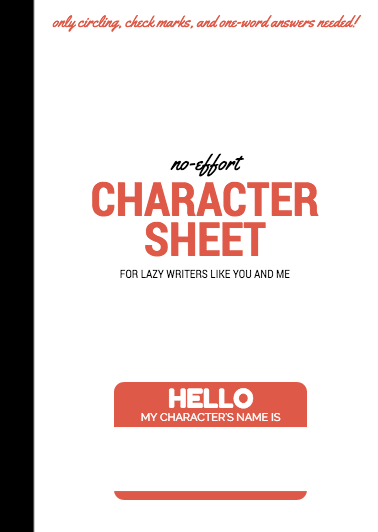
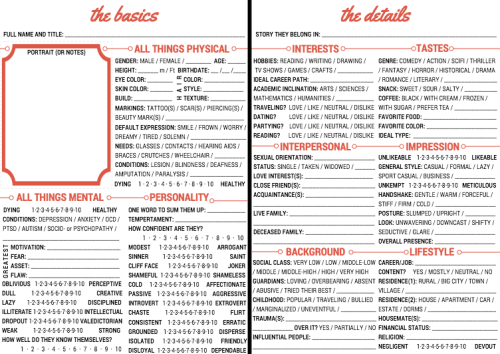
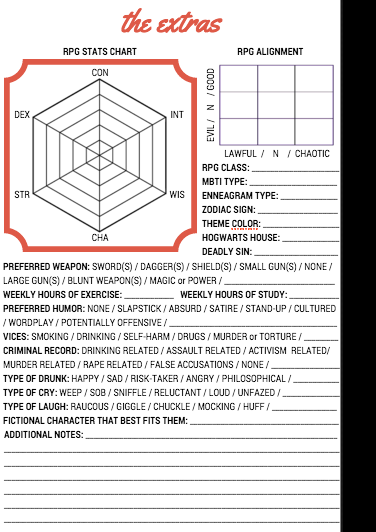
From the makers of the no-effort character checklist, I bring to you… The no-effort complete character sheet for lazy writers like you and me™!
Because the extra effort I put in staying up until 3 am to do put this together can save us all a lot of effort filling out longer character sheets ^^
You’re supposed to print it out and fold it in half to make a little booklet but you can save ink and do it on your computer :P
Link to PDF on google drive (fixed typo)

A Letter to Creatives Not Creating…

Sometimes stories cry out to be told in such loud voices that you write them just to shut them up.
Stephen King (via psliterary)


Why I Love Writers
How We Write: The world in the morning was a land frost kissed and chilled. The sun rising above the willows to burn away fog and drink it up again. We rise anew, our bones stretching, our skin shimmering, our blood beating a drummer boys concerto. The land is coffee beans and frying pans and sweetness on the tongue, and we follow its path to whatever life may bring. We are the people and we are alive and we are ready.
How We Talk: Um- I mean… sure… yeah… uh, I mean I guess I’m a morning person I mean oh shit I stuttered didn’t I I mean fu-frick, there’s a lot of stuff in the morning that I like and coffee is basically, you know, good or something or… um… the floor is cold? And sorry, I keep saying cruse words, oh shit I mean curse words I messed up my letters lol um… wow this is super awkward um… maybe we could start over and HOLY SHIT A PUPPY.
50 things you should ask your character before you start writing.
I started the preparation for a novel and wondered what kind of things I should ask my most important characters. So I looked around on the net and put this list together.
1. What is your full name?
2. Date and place of birth?
3. Tell me about your parents?
4. Brothers? Sisters?
5. Where/how do you live? (alone or with someone; in what kind of home?)
6. Do you have a job? If yes what is it?
7. How do you look? Hair, eye and skin color, height, weight, any marks, style of dress.
8. Do you have any allergies, mental illnesses, psychical weaknesses?
9. Are you left or right handed?
10. Do you have any tics, certain habbits or other things like that?
11. What do you usually carry in your pockets?
12. Describe your childhood
13. Did you like going to school?
14. Where did you learn most of the things you know?
15. Who did you look up to when you were younger?
16. Did you like your family? Why/why not?
17. What was your dream job?
18. What kind of child were you?
19. What’s the most important thing you did in your life?
20. Have you ever had any romantic relationships? And if they ended, why did you break up?
21. Do you have a relationship now?
22. What is your greatest regret?
23. What is the worst thing you ever did?
24. What are you scared of?
25. Best memory? And worst?
26. What are your religious views?
27. Would you kill anyone? If yes, why?
28. Would you die for anyone?
29. Do you make friends quickly?
30. How would you describe your manners?
31. Turn ons?
32. Turn offs?
33. Are you close to your family? Why/why not?
34. If you desperately need help, who do you turn to?
35. Your hobbies?
36. Your most treasured possession?
37. Favourite color and food?
38. Favourite book/genre?
39. Do you smoke/drink/do drugs? And if so, why?
40. What is your favourite way of spending a Saturday?
41. How do you deal with stress?
42. Favourite joke?
43. How do you react if someone disturbs your routine?
44. Do you like yourself?
45. Introvert or extrovert?
46. What are you good at?
47. And what are you not good at?
48. What words describe you?
49. what is your weakness?
50. What would you want to add that you feel is important?
I would ask these things like I am having a conversation with my character.
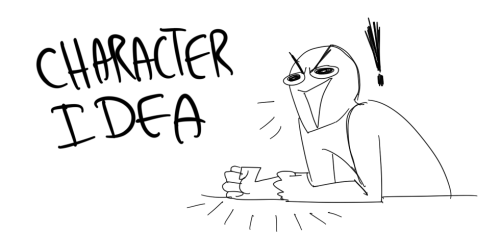
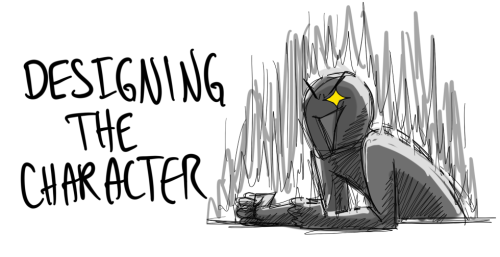
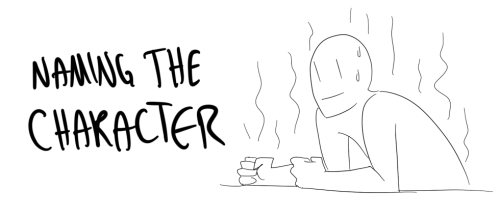
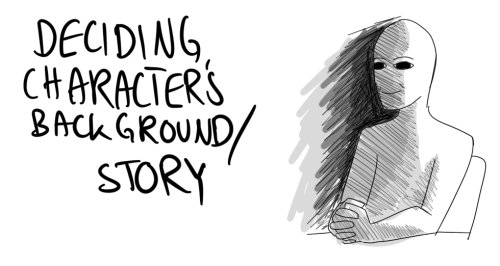
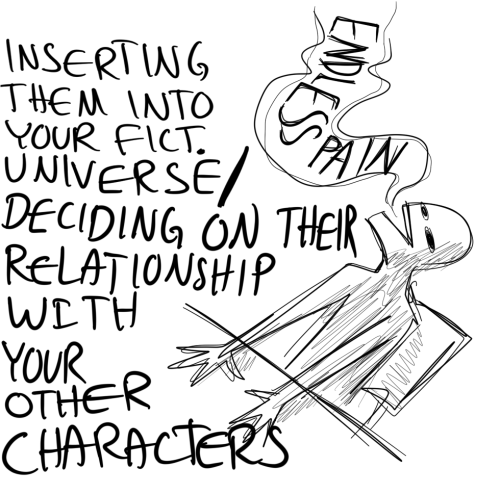
the suffering never ends

Ways to un-stick a stuck story
Do an outline, whatever way works best. Get yourself out of the word soup and know where the story is headed.
Conflicts and obstacles. Hurt the protagonist, put things in their way, this keeps the story interesting. An easy journey makes the story boring and boring is hard to write.
Change the POV. Sometimes all it takes to untangle a knotted story is to look at it through different eyes, be it through the sidekick, the antagonist, a minor character, whatever.
Know the characters. You can’t write a story if the characters are strangers to you. Know their likes, dislikes, fears, and most importantly, their motivation. This makes the path clearer.
Fill in holes. Writing doesn’t have to be linear; you can always go back and fill in plotholes, and add content and context.
Have flashbacks, hallucinations, dream sequences or foreshadowing events. These stir the story up, deviations from the expected course add a feeling of urgency and uncertainty to the narrative.
Introduce a new mystery. If there’s something that just doesn’t add up, a big question mark, the story becomes more compelling. Beware: this can also cause you to sink further into the mire.
Take something from your protagonist. A weapon, asset, ally or loved one. Force him to operate without it, it can reinvigorate a stale story.
Twists and betrayal. Maybe someone isn’t who they say they are or the protagonist is betrayed by someone he thought he could trust. This can shake the story up and get it rolling again.
Secrets. If someone has a deep, dark secret that they’re forced to lie about, it’s a good way to stir up some fresh conflict. New lies to cover up the old ones, the secret being revealed, and all the resulting chaos.
Kill someone. Make a character death that is productive to the plot, but not “just because”. If done well, it affects all the characters, stirs up the story and gets it moving.
Ill-advised character actions. Tension is created when a character we love does something we hate. Identify the thing the readers don’t want to happen, then engineer it so it happens worse than they imagined.
Create cliff-hangers. Keep the readers’ attention by putting the characters into new problems and make them wait for you to write your way out of it. This challenge can really bring out your creativity.
Raise the stakes. Make the consequences of failure worse, make the journey harder. Suddenly the protagonist’s goal is more than he expected, or he has to make an important choice.
Make the hero active. You can’t always wait for external influences on the characters, sometimes you have to make the hero take actions himself. Not necessarily to be successful, but active and complicit in the narrative.
Different threat levels. Make the conflicts on a physical level (“I’m about to be killed by a demon”), an emotional level (“But that demon was my true love”) and a philosophical level (“If I’m forced to kill my true love before they kill me, how can love ever succeed in the face of evil?”).
Figure out an ending. If you know where the story is going to end, it helps get the ball rolling towards that end, even if it’s not the same ending that you actually end up writing.
What if? What if the hero kills the antagonist now, gets captured, or goes insane? When your write down different questions like these, the answer to how to continue the story will present itself.
Start fresh or skip ahead. Delete the last five thousand words and try again. It’s terrifying at first, but frees you up for a fresh start to find a proper path. Or you can skip the part that’s putting you on edge – forget about that fidgety crap, you can do it later – and write the next scene. Whatever was in-between will come with time.

Word Counter - Not only does it count the number of words you’ve written, it tells you which words are used most often and how many times they appear.
Tip Of My Tongue - Have you ever had a word on the tip of your tongue, but you just can’t figure out what it is? This site searches words by letters, length, definition, and more to alleviate that.
Readability Score - This calculates a multitude of text statistics, including character, syllable, word, and sentence count, characters and syllables per word, words per sentence, and average grade level.
Writer’s Block (Desktop Application) - This free application for your computer will block out everything on your computer until you meet a certain word count or spend a certain amount of time writing.
Cliche Finder - It does what the name says.
Write Rhymes - It’ll find rhymes for words as you write.
Verbix - This site conjugates verbs, because English is a weird language.
Graviax - This grammar checker is much more comprehensive than Microsoft Word, again, because English is a weird language.
Sorry for how short this is! I wanted to only include things I genuinely find useful.

All the time….
The five types of writers block
Inspirationless: where you have the motivation but just can't think of anything good to write.
Motivation Deprived: you have the idea, but just, don't really wanna.
Pooped: Basically you have no ideas and don't really feel like writing anyways.
Procrastination: Where you are SO PUMPED TO GET THIS THING DONE!! But, there's that other thing, and, your show is on, and, you'll just do it tomorrow.
AAAAAAAAAAAAAAAA: AAAAAAAAAAAAAAAAAAAAAAAAAAAAAAAAAAAAAAAAAAAAAAAAAAAAAAAAAAAAAAAAAAAAAAAAAAAAAAAAAAAAAAAAAA-
Claire, i love you and your writing. As a writer, how do you support yourself financially? Emotionally? But mostly some practical tips on keeping yourself afloat and doing what you love. cheers xo
Hi friend! I’ve blogged before a couple different times on my life as a writer and my advice to other people who want to write professionally, so here without further ado is Claire’s Master List of Blog Posts About Writing Advice!
Anonymous asked: how did you get into writing and getting published?
Anonymous asked: Hi my dear! I recently read that you’re a playwright, I thought a lot about it and afraid to ask you but here I am, sorry if it’s a little inappropriate question but this topic is very interesting for me because now I choose where I want to go. Please, can you tell me where you studied for the playwright? Thank you, love you and your blog Xх
Anonymous asked: any tips on how to keep inspiration and motivation when writing? im trying to finish this t100 fic, took a break after several days of continuous writing but now i can’t seem to get it back!
Anonymous asked: This may be a really random question, but did you always know you wanted to be a novel writer, or did you kind of think about other forms of writing like TV etc. ? Or if not, how would you advise someone who isn’t sure which one to put their energy into? Don’t worry if you can’t answer this 😅
I hope this is helpful! Happy writing!
Love,
Claire
Writing Resources Masterlist
Masterlist of…
Facial Expressions
50 Romance Plot Ideas
Gestures and Body Language
Physical Descriptions
Voice Descriptions
Writing Sex/Body
500 Great Words for Writing Love Scenes
Synonyms for Parts of the Body
7 Rules for Writing Sex Scenes
How to Write a Sex Scene
Action
How to Write a Fight Scene
How to Write a Fight Scene (in 11 Steps)
8 Things Writers Forget When Writing Fight Scenes
Characters
How to Make Your Reader Care About Your Characters
The 5 Absolute Dimensions of Character Personality
5 Ways to Hide Your Villain In Plain Sight
33 WAYS TO WRITE STRONGER CHARACTERS
39 Villain Motivations
MAKING A DARK CHARACTER LIKEABLE THROUGH VULNERABILITIES
Dialogue
HOW TO WRITE ARGUMENTS WITH MAXIMUM PUNCH
19 Ways to Write Better Dialogue
50 Things Your Characters Can Do WHILE They Talk

Go to him.